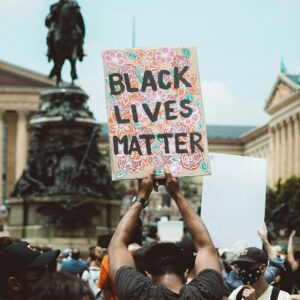
Nationwide, nearly 80 million people rely on Medicaid for health insurance coverage in the United States. The budget bill passed by the US House of Representatives last week reduces Medicaid expenditures by $1.4 trillion over 10 years. The Latine community will be disproportionately affected.
All told, over 28 million Latines rely on Medicaid and the Children’s Health Insurance Program (CHIP) for their healthcare. According to the Kaiser Family Foundation’s Health News, the Latine population has consistently been between 26 and 30 percent of Medicaid beneficiaries since 2008, well above their 19 percent share of the US population.
Medicaid is a joint federal and state program that provides health coverage to people with low incomes. For many families—especially those employed in the construction, domestic work, or food industries, where employers rarely offer worker health insurance—Medicaid is the only path to essential care.
Among the Latine community in particular, the stakes are high.
Advocacy Groups Mobilize
A number of organizations that serve Latines are mobilizing to defend Medicaid. For example, Stan Dorn, director of the Health Policy Project at UnidosUS, told NPQ that his nonprofit has “brought together multiple organizations to raise awareness about the harmful consequences these cuts would have on Medicaid beneficiaries and people who purchase insurance through the ACA [Affordable Care Act] marketplace—particularly children and communities of color.”
All told, over 28 million Latines rely on Medicaid and the Children’s Health Insurance Program (CHIP) for their healthcare.
Advocacy groups are also pursuing legal and media strategies to highlight the human cost of these cuts—especially for children, the elderly, and those with chronic illnesses.
Adriana Cadena, director of the Protecting Immigrant Families coalition, talked to NPQ about the persistent discrimination embedded in the healthcare system—“discrimination that doesn’t always shout but quietly excludes.” Her warning was not only about present-day barriers but about how these patterns of exclusion carve deep, lasting grooves into the future of entire communities.
“If you’re a person of color—if you’re Brown, if you’re Latino—there’s often an assumption that you’re an immigrant, and by extension, that you don’t deserve access to healthcare,” she said. “That’s the real concern. It’s not just about the urgent, day-to-day needs of individuals and families, but about the long-term consequences this mindset has on entire communities.”
Though the bill ultimately passed, the campaigns did make a political impact, slowing approval processes in Congress. And advocates will continue to support communities, raise awareness, and strategize legal and political responses as fallout from the bill begins to be felt on the ground.
Understanding the Stakes
Advocates speaking to NPQ outlined the harmful impacts that Medicaid cuts will have. Dorn noted that “hospitals and clinics in Latino communities would face serious economic harm, as they would no longer receive revenue from many of the patients they currently serve. Some may have no choice but to shut down key departments—such as maternity wards—or close completely, especially in rural areas. That would limit healthcare access for everyone in those communities, not just Medicaid or ACA beneficiaries.”
Leonardo Cuello, a public policy research professor at Georgetown University and critic of the proposed Medicaid cuts, described them as “the largest and most damaging cuts in the program’s history.” He explained to NPQ that these cuts will not only reduce access to care for vulnerable populations but also destabilize state healthcare systems by slashing federal funding.
Cuello has emphasized that many of the children at risk of losing healthcare coverage are still eligible for Medicaid or CHIP, but their families face bureaucratic barriers that prevent them from completing the renewal process.
The stakes go far beyond health coverage. These cuts deepen economic inequality.
“The group that is eligible is a subset of the lawfully present immigrants, qualified immigrants. And what they have done in this bill is taking that definition of qualified immigrants and making it even smaller. So now, the number of immigrants that are going to qualify for Medicaid and CHIP…will get much smaller,” he said.
The stakes go far beyond health coverage. These cuts deepen economic inequality. With an average annual household income of $65,000, many Latine families already face high living costs, rising rents, and stagnant wages.
Seeking Alternatives
With Medicaid cuts looming, many Latine families are looking for ways to maintain access to healthcare. One of the most significant resources available is the ACA marketplace.
Through this federal program, individuals can purchase private insurance plans, often with subsidies that dramatically reduce monthly premiums. These subsidies are especially helpful for those with low to moderate incomes who would otherwise not qualify for Medicaid under the new tightened eligibility rules.
Cadena highlighted the broader economic consequences of these cuts: “This isn’t just a policy shift—it’s the beginning of a devastating economic chain reaction,” she warned.
“When people can’t access the care they need, they get sick, they miss work, and entire communities suffer. It’s a snowball effect: Fewer healthy workers lead to lower productivity, rising healthcare costs, and deepening inequality. Denying healthcare isn’t just unjust—it’s economically reckless,” Cadena added.
In addition to federal options, state-based health assistance programs offer a patchwork of support. Depending on where a person lives, states may provide low-cost insurance plans, help with prescription medications, or offer partial reimbursement for medical services. While the details vary, these programs often have more flexible criteria than Medicaid and can be a critical option for those navigating a shifting healthcare landscape.
For those without insurance or ineligible for state programs, nonprofit community clinics—known as federally qualified health centers— have long served as a safety net. Scattered across the country, these clinics provide free or low-cost care regardless of income or immigration status. Services typically include primary care, pediatric care, mental health support, and preventive screenings.
“What they have done in this [Republican budget] bill is taking that definition of qualified immigrants and making it even smaller.”
Though often more costly, private health insurance plans remain another route. They generally offer wider networks of providers and can be tailored to individual health needs, including chronic condition management or specialized treatment. While affordability may be a hurdle, some families choose these plans to maintain continuity of care.
Finally, many communities benefit from faith-based and local initiatives—including programs run by churches, community centers, and charitable foundations. These organizations frequently offer direct medical aid or help families navigate available public and private health resources.
Together, these alternatives form a vital mosaic of care—piecemeal though they are. They reflect a broader truth: that even in the face of uncertainty, families are finding ways to protect their wellbeing and advocate for their right to health.
A Question of Trust
Meanwhile, many immigrants, a sizable percentage of whom are Latine, face an additional silent healthcare access crisis, as both undocumented people and those with legal noncitizen status avoid seeking medical care out of fear that doing so could lead to deportation.
This fear is especially acute in mixed-status families, where even US citizen children may miss doctor’s appointments because their parents are afraid of exposing their family to immigration authorities.
For Latine health advocates, the implications of Medicaid cuts go beyond access—they touch on trust in the government and the healthcare system. As Dorn stated:
The key to trust is privacy protection. If the Trump administration succeeds in efforts to share Medicaid application data with the Department of Homeland Security for immigration enforcement, countless Latino families will avoid seeking health coverage and other public benefits for their children, seniors, and themselves. The chilling effect is already significant.
“When it comes to healthcare access, the government has consistently failed to prioritize the needs of Latino communities,” said Cadena. “There’s a persistent lack of language access, no clear guarantees that families’ personal information will be protected from immigration enforcement.”
As Cadena emphasized, “These gaps don’t just reflect oversight—they send a painful message that Latino health and lives are not valued. And that is simply unacceptable.”














